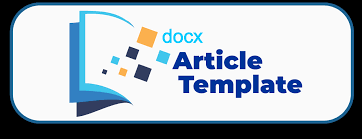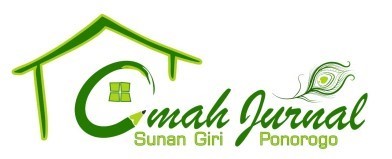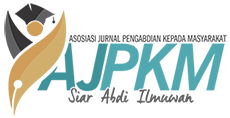Pemberdayaan Kelompok Wanita Tani dengan Produktivitas dan Peluang Usaha melalui Pelatihan Abon Lele di Kabupaten Sleman
Empowering Women Farmer Groups with Productivity and Business Opportunities through Shredded Lele Training in Sleman Regency
DOI:
https://doi.org/10.37680/amalee.v3i2.1322Keywords:
Farmer Women's Group;, Shredded Lele;, Training.Abstract
Abstract: This empowerment program aims to increase productivity and open business opportunities for the Women Farmers Group (KWT) through training in processing catfish floss in Padukuhan Soromintan. KWT problems, such as the lack of processed agricultural products and difficulties in marketing their harvests, have caused the low productivity of the KWT Mugi Lancar to be the reason for the intense business productivity. Based on this, this empowerment conceptualizes the program as a follow-up to solving the problems faced by KWT Mugi Lancar through training in processing catfish floss. The implementation method has five stages: problem identification, conceptualization, success indicators, validation, and application. The results of the implementation of community empowerment show that the catfish floss processing training is divided into two types of exercise, namely theory and practice, which includes training on catfish floss processing, packaging, and legality submissions to marketing. The result shows a level of understanding of the catfish-shredded training participants. This is expected to increase the motivation of KWT Mugi Lancar to carry out business productivity through processing catfish floss.
Abstrak: Pengabdian masyarakat ini bertujuan untuk meningkatkan produktivitas dan membuka peluang usaha Kelompok Wanita Tani (KWT) melalui pelatihan pengolahan abon lele di Padukuhan Soromintan. Minimnya olahan hasil pertanian dan kesulitan dalam memasarkan hasil panen menyebabkan rendahnya produktivitas usaha KWT Mugi Lancar. Berdasarkan hal tersebut pemberdayaan ini mengkonseptualisasikan program sebagai tindak lanjut untuk menyelesaikan permasalahan yang dihadapi oleh KWT Mugi Lancar melalui pelatihan pengolahan abon lele. Metode pelaksanaan dilakukan melalui lima tahapan di antaranya identifikasi masalah, konseptualisasi, indikator keberhasilan, validasi, dan aplikasi. Hasil akhir menunjukkan peningkatan motivasi KWT Mugi Lancar dalam produktivitas usaha melalui pengolahan abon lele.
References
Amiroh, A., & Darmayani, N. (2021). Upaya Peningkatan PKK Melalui Pengolahan Ikan Lele dengan Metode Zero Waste Menjadi Kerupuk Unggul di Desa Sugihwaras Bojonegoro. Prosiding Seminar Nasional Pertanian, 2(1).
Anggraini, S. (2020). Upaya Kelompok Wanita Tani (KWT) Dalam Pemberdayaan Masyarakat Melalui Pemanfaatan Pekarangan Rumah di Kampung Sinar Harapan Kelurahan Rajabasa Jaya Bandar Lampung [Universitas Islam Negeri Raden Intan Lampung]. http://repository.radenintan.ac.id/9699/1/COVER - BAB I - II - DAPUS.pdf
Astarina, M. D., Dewi, A. A. D., & Bekti, R. P. (2020). Pemberdayaan Kelompok Wanita Tani dalam Usaha Diversifikasi Produk Olahan Ikan Lele untuk Meningkatkan Nilai Konsumsi. Intervensi Komunitas: Jurnal Pengabdian Masyarakat, 2(1).
Estelia, & Andriani. (2014). Perbedaan Kualitas Ikan Lele Dumbo dengan Ikan Lele Lokal dalam Pembuatan Abon Ikan. Jurnal Pengabdian Kepada Masyarakat, 20(78).
Harianti, R., & Tamberika, F. S. (2018). Pemberdayaan Wanita Tani Melalui Produksi Abon Ikan Lele. Jurnal Pendidikan Dan Pemberdayaan Masyarakat, 5(2).
Rianto, B., Broto, W., Arifan, F., & Setyati, W. A. (2018). Pengolahan Limbah Hasil Budidaya Ikan Lele Menjadi Pupuk Organik Cair di Desa Sruwen. Proceeding SNKPPM, 1(1).
Rinaldi, Soncini, S., Stehfest, & Tamura. (1979). Modelling and Control of River Quality. McGraw-Hill, Inc.
Suharman, & Syarifah, A. N. (2021). Pemberdayaan Masyarakat Melalui Pelatihan Pengolahan Kripik Ikan Lele dalam Meningkatkan Ekonomi Kreatif di Masa New Normal. Jurnal Abdimas UBJ, 4(3).
Suryana, I. M., & Widiandya, I. B. (2016). Pertanian Berkelanjutan Melalui Pengelolaan Limbah dan Pengolahan Pasca Panen. Jurnal Bakti Saraswati, 5(2).
Widajajanti, K. (2011). Model Pemberdayaan Masyarakat. Jurnal Ekonomi Pembangunan, 12(1), 15–27.
Downloads
Published
How to Cite
Issue
Section
License
Authors who submit manuscript retain its copyright and grant Amalee right of first publication licensed under a Creative Commons Attribution-ShareAlike 4.0 International License (CC BY-SA 4.0) that allows others to access (search, read, download, and cite), share (copy and redistribute the material in any medium or format) and adapt (remix, transform, and build upon any material) the work for any lawful purpose, even commercially with an acknowledgement of the work's authorship and initial publication in Amalee: Indonesian Journal of Community Research and Engagement.














